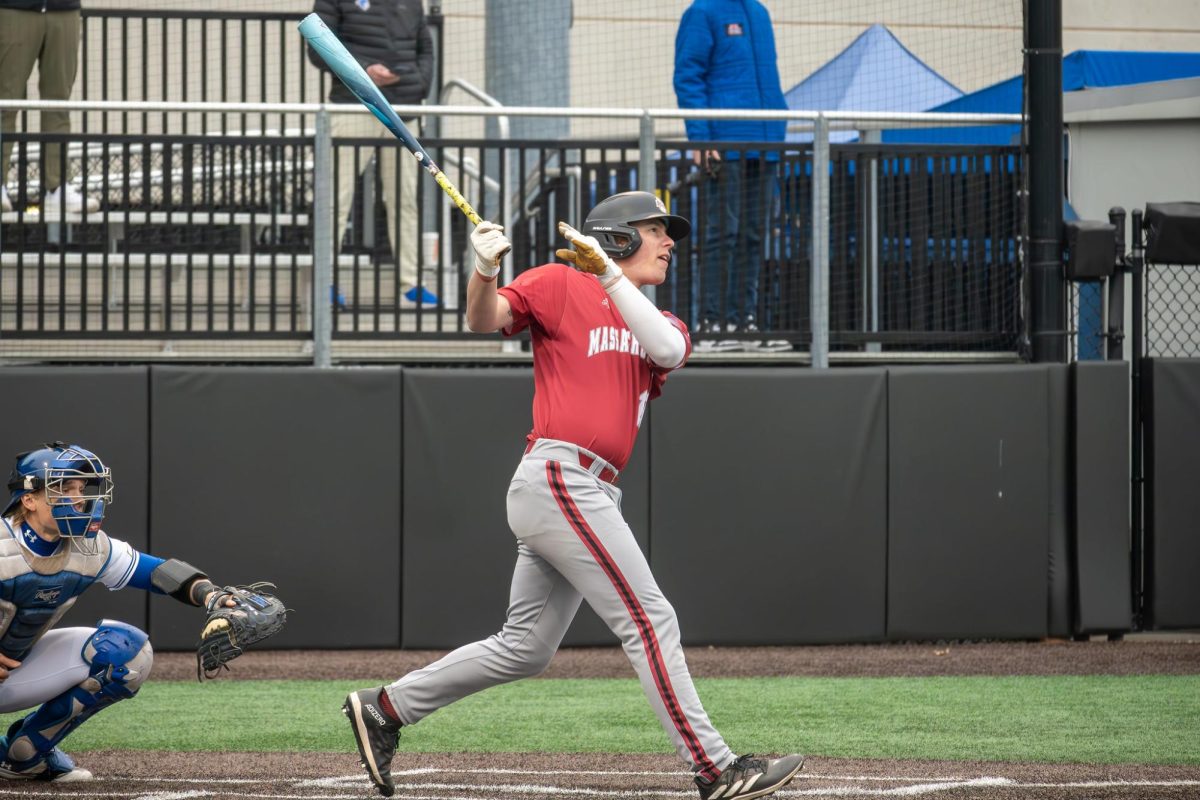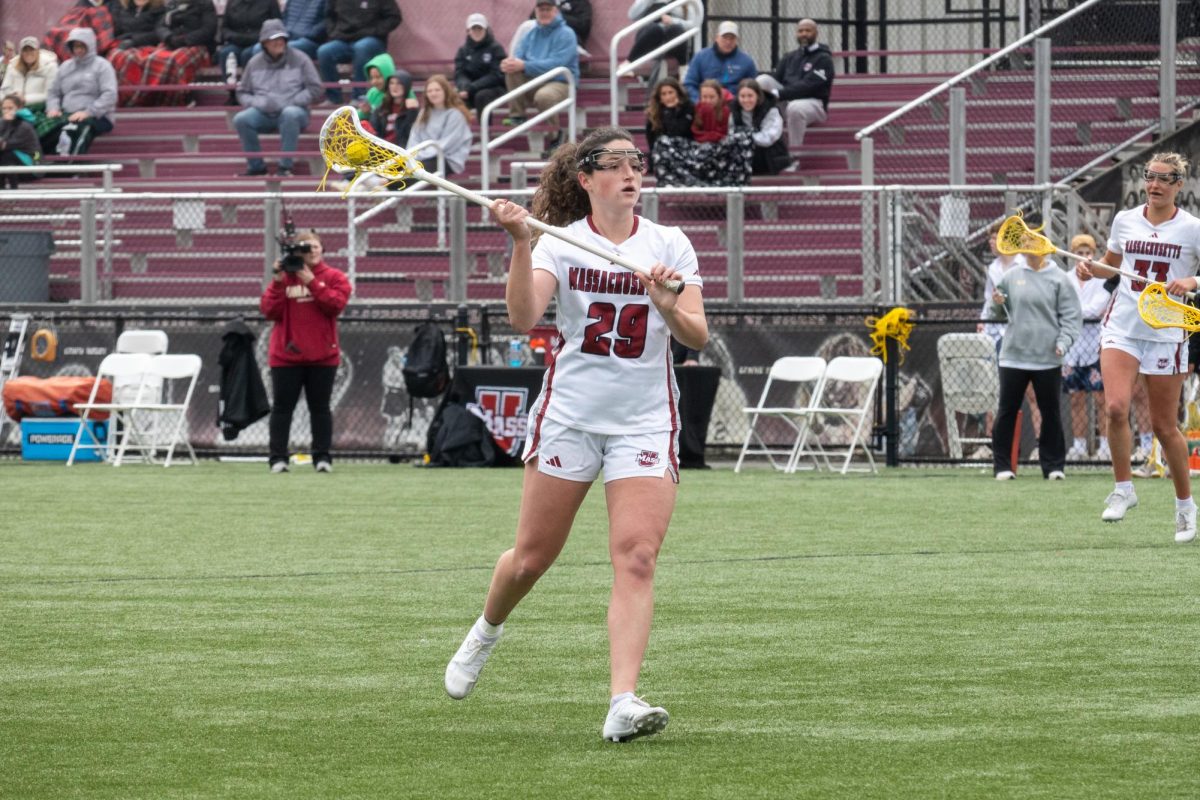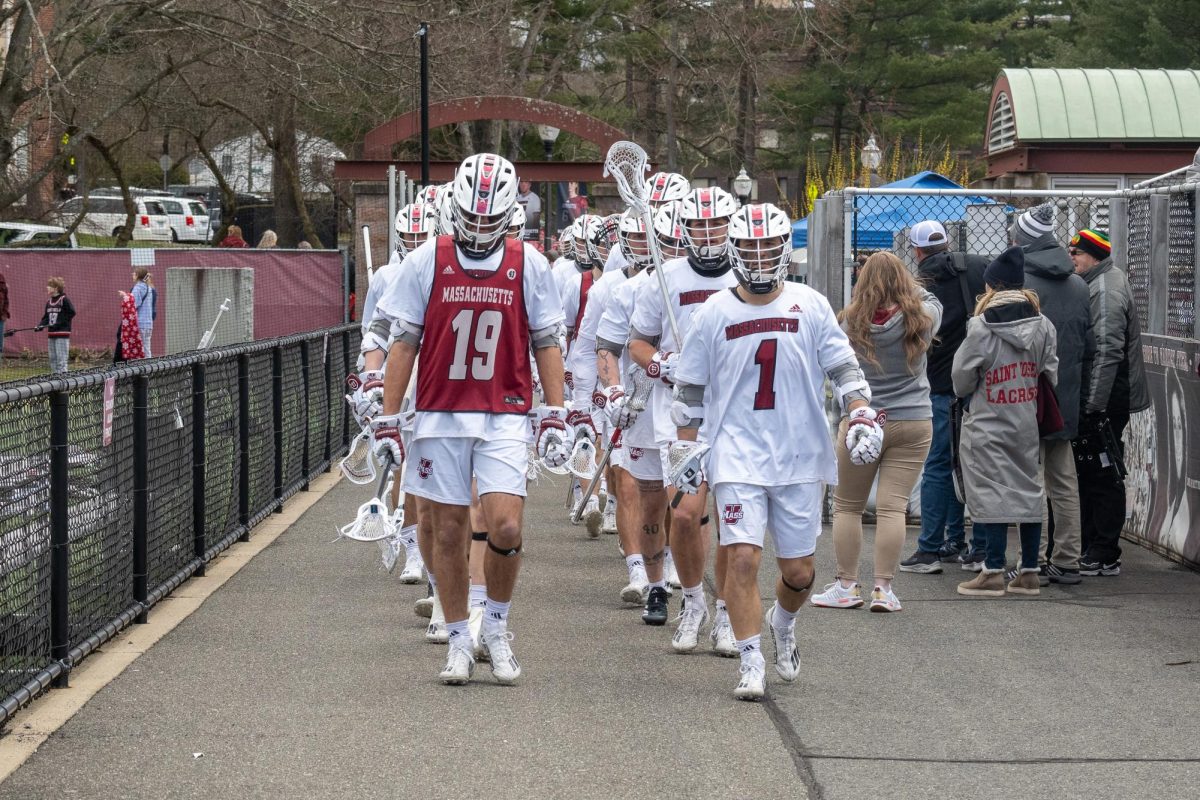In a majority ruling of the University of Massachusetts Student Government Association Student Judiciary, the six justices unanimously decided not to recall SGA President Timmy Sullivan from office after he was impeached by the senate in December.
Released on Friday evening, the 14-page ruling on “Student Government Association Senate v. Student Government Association President Timothy Sullivan” was authored by Associate Justice Jeremy Brum.
“After examining all the evidence, the Student Judiciary unanimously finds that the Petitioner proved by a preponderance of the evidence that the impeachment was constitutional,” the judiciary ruling states. “However, the Petitioner failed to prove that the underlying allegations proven had a material adverse effect upon the student body or the functioning of the Student Government Association. As such, the Student Judiciary unanimously rules that President Sullivan shall not be recalled.”
The ruling summarized the arguments made in a lengthy hearing which took place between Feb. 6 and 8. The hearing was the first of its kind in SGA history, as no president had previously been impeached. At the hearing, the petitioner, the SGA senate, was represented by a panel of senators, including Administrative Affairs Committee Chair Althea Turley, Senator Jordan McCarthy, Senator Patrick Collins, Senator Sean Vo and Senator Nicholas Flanagan. The respondent was Sullivan. He elected to have a judicial advocate in the hearing, Attorney General Ilina Shah.
Divided into several sections, the ruling established precedent for future cases and interpreted the powers of the judiciary in the recall of an SGA official. First, the judiciary held that petitioners could not levy allegations in their petition that were not included in the articles of impeachment as they existed when the senate voted to adopt them.
“The inclusion of additional charges in the Petition for a Ruling violates not only the due process rights of the impeached Officer, who has had no opportunity to be heard on those allegations before the Senate, but also misrepresents the sentiment expressed by the Senate when they voted,” the ruling states.
While the senate did not include the articles – as voted on in the senate – in their petition, the judiciary decided it would “neither deny nor dismiss” the petition on that basis given that the case was the first of its kind. However, allegations not included in the articles were not considered by the judiciary.
The judiciary also determined that it had the jurisdiction to hear the petition based on articles of impeachment even if the underlying acts occurred more than 90 days prior as long as the petition was filed within 90 days of the impeachment vote.
In reviewing and ruling on a petition, the judiciary stated it must conduct a two-step inquiry. First, the judiciary will analyze the constitutionality of the process of impeachment. If there were harmful errors in that process, the judiciary could invalidate the articles of impeachment.
“The Judiciary therefore finds that the Petitioner has proven, by a preponderance of the evidence, that the impeachment was conducted constitutionally and in compliance with the SGA Bylaws,” the judiciary noted, allowing the inquiry to move onto the next step.
Second, the validity of the impeachment will be assessed. The second step required the judiciary to analyze whether the senate presented sufficient evidence to support the allegations in the articles and demonstrate that that evidence warranted recall. In order to recall the officer, the judiciary must find that the impeachment was “both constitutional and valid.”
In their brief, the petitioner wrote that the judiciary was “expected” to recall the officer if the senate impeachment was in accordance to the SGA bylaws.
In their ruling, the judiciary rejected that their role was “nothing more than a reviewer of the process undertaken by the Senate.”
“For the Judiciary to simply act as a ‘rubber stamp,’ as to the actions of the Legislature is directly contrary to the purpose of the Judiciary,” the ruling states.
As the SGA constitution provided “no textual guidance” as to the standard of review for the validity of the senate’s actions, the judiciary considered the purpose of the SGA and cited the necessity of checks and balances in the student government: “It is with a keen sense of the purpose of these checks and balances, of the severity of recalling an impeached Officer, and of the implications that such an action has with respect to undermining the power of students to elect their representatives and have their voices heard through those representatives, that the Judiciary establishes a standard for recall.”
For each allegation, the judiciary reviewed the evidence presented by the senate and determined whether Sullivan engaged in any act of “malfeasance and/or misconduct while in office, misuse of student funds or incompetence in the performance of duties.” Based on the judiciary’s standards, an officer would only be recalled if the act had a “material adverse effect” upon the student body or function of the SGA.
The first allegation addressed in the ruling was that Sullivan made incomplete and untrue statements regarding the number of applications for the vacant secretary of technology and vice president positions to the senate on Oct. 30. The allegation was uncontested and the burden of proof was met.
The judiciary credited Sullivan’s testimony that he learned that the allegations would be presented less than 24 hours prior to the meeting and he prepared the incomplete and untrue statements only “15 minutes beforehand.” The judiciary also credited Shah’s testimony corroborating Sullivan’s version of events. However, the ruling said it was the duty of any officer making a report “to ensure that it is factually true and complete.”
The ruling continued, “anything less, even absent willfulness or intent to lie, constitutes neglect of the Officer’s duties.”
However, the judiciary determined that the senate failed to demonstrate that the statements had a material adverse effect upon the student body or SGA functions and did not remove Sullivan on that basis.
The second allegation was that Sullivan failed to fill the vacant vice president position in a timely manner. The petitioner was deemed to have met their burden of proving the allegation. However, the judiciary credited Sullivan’s testimony, corroborated by Vice President Hayden Latimer-Ireland’s testimony, that the decision was a “strategic choice” within the scope of the president’s office.
The third allegation addressed in the ruling was that Sullivan failed to timely fill the vacant secretary of technology position. The judiciary determined that the burden of proof was met and the allegation was uncontested. Sullivan testified that he did not deem any applicants suitable for the position, and the judiciary found the act did not constitute a recall.
Fourth, the allegation that Sullivan was paid with money allocated out of the Student Activities
Trust Fund to the vice president position for carrying out the other position’s duty was uncontested. The judiciary considered the petitioner’s argument that the president’s being paid for those hours was unethical, regardless of the completed work. The judiciary ultimately credited the testimony of multiple witnesses that there were no SGA bylaws concerning how payroll is carried out or how paid hours are allocated within the cabinet.
The fifth allegation was Sullivan’s failure to notify the senate of his payroll change; it was not contested. The judiciary again noted that no bylaws exist concerning how payroll is carried out and Sullivan was not required to inform the senate with respect to the decision.
The sixth allegation, that Sullivan was paid for the vice president position after Latimer-Ireland was sworn in, did not lead to Sullivan’s recall as the senate “offered no evidence to refute the testimony of President Sullivan and Vice-President Latimer-Ireland that he, and not she, was performing the bulk of the duties of the position during those weeks that he was paid for them.”
The seventh allegation, which claimed the Respondent failed to inform applicants that they were no longer being considered for the vacant Cabinet positions, was contested by the respondent.
“Even though the Judiciary does not weigh heavily the testimony by President Sullivan that he informed the applicants of their status, the absence of any evidence in support of the Petitioner’s claim is fatal,” the judiciary determined the petitioner failed to prove the allegation.
The final allegation was uncontested: that Sullivan failed to inform the senate of the lack of qualified applicants for the vacant Secretary of Technology position within the 30 days required by the bylaws. However, the petitioner presented no evidence the duties of the position were neglected or unfilled, according to the ruling. While the judiciary found that Sullivan demonstrated “incompetence in the performance of his duties,” the justices ruled that the senate failed to demonstrate that the statements had a material adverse effect on the student body or functioning of the SGA.
The ruling noted several evidentiary issues in the hearing, including a lack of awareness or misunderstanding of the rules of evidence on the part of the petitioner and respondent. Opinion based evidence, the ruling explained, is only admissible in cases where the opinion is made on known facts or the witness is an expert.
“In order for a witness to be considered an “expert,” and thus be allowed to give testimony as to their opinion, they must be shown to have more than just a passing familiarity with the subject (i.e., it is not enough to have read a document multiple times),” the document stated. An “expert” must have specialized education, training or experience in a subject area. During the hearing, several of the witnesses for the senate claimed to be “experts.”
When asked for comment on the ruling, Turley compared the “final chapter of the impeachment proceedings” to events in the U.S. government and thanked everyone who attended the hearing.
“This hearing will set a precedent. Never before has the Senate made an impeachment vote and never before has the judiciary been asked to rule on such a case,” Turley wrote in an email, explaining her comments had been drafted before the ruling was announced but her thoughts remained the same.
“Whatever the judiciary decides and whatever your position on the matter is, I hope you’ve learned something,” Turley said. “SGA is intended to help us grow. We all heard the same facts of this case, but our moral compasses and personal contexts guided us to different conclusions.”
Sullivan, Shah and the other senators who participated in the hearing did not comment as of Sunday, Feb. 17.
Kathrine Esten can be reached at [email protected] and followed on Twitter at @KathrineEsten.





















Ed Cutting, EdD • Feb 23, 2020 at 10:52 am
Wrong — it’s been more than 20 years now, but the Student Judiciary removed President Amy Pellegrino from office, and then a few years later removed Speaker Jim Eltringham — this *is* in the Collegian’s archives as it was extensively covered at the time. Jill Carroll was one of the reporters.
.
I think that Whitmore has a problem here because students aren’t allowed to allocate (i.e. spend) SATF funds. All of it technically is done by a UMass Administrator, and while it is largely pro-forma, the ADMINISTRATION is ultimately responsible for every penny of the SATF, not the SGA.
.
Hence it’s not just that Sullivan paid himself extra money, but that at least one UM administrator approved it.
.
And any aggrieved student can go to the State Auditor or US Attorney….
joeyd • Feb 18, 2020 at 6:31 pm
The pretend judges have decided Sullivan can stay!
Well this is a great day for umass. I am so excited. SGA has a huge influence on student life! Now we can go on more free ski trips.
Yam • Feb 18, 2020 at 4:31 pm
Nice reporting, Kathrine!